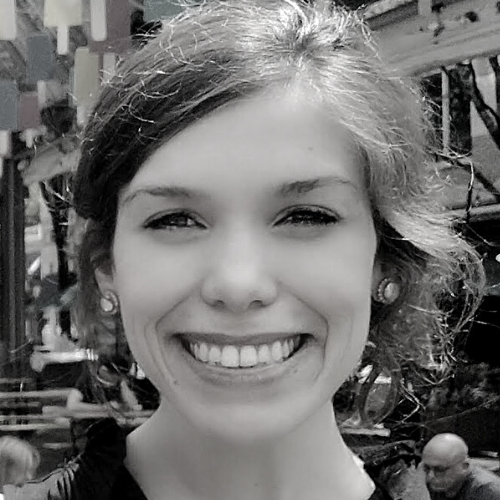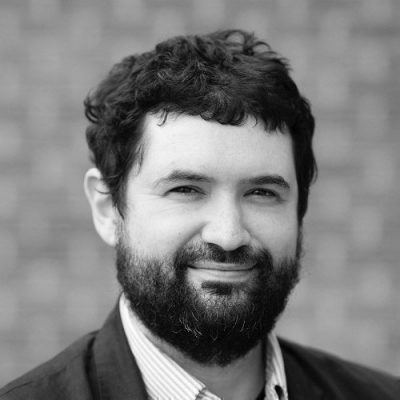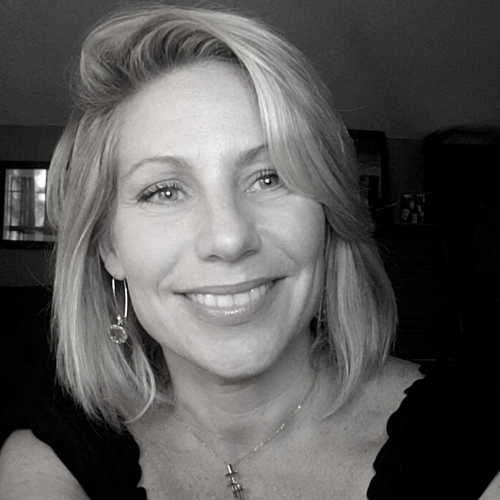Medieval Literature for Middle Grades
Required Materials:
Books and supplies are not included in the purchase of the course.
Sections with Mr. Marchand:
- Beowulf. Kevin Crossley-Hollan (Translator). New York: Oxford World Classics, 2008.
- ISBN: 9780199555291
- Mallory, Thomas. Le Morte Darthur: The Winchester Manuscript (Oxford World’s Classics) Annotated Edition.
- ISBN: 0199537348
- Tolkien, J.R.R (Translator). Sir Gawain and the Green Knight, Pearl, and Sir Orfeo. William Morrow Paperbacks, 2021.
- ISBN: 0358652979
- The Divine Comedy. Dante. C.H. Sisson (translator). New York: Oxford World Classics, 2008.
- ISBN: 978-0199535644.
- NOTE: we will be reading portions of the three sections of The Divine Comedy rather than the entire work.
- Don Quixote. Miguel de Cervantes. Edith Grossman (translator). Ecco (publisher), 2003.
- ISBN: 978-0060188702
- NOTE: we will be reading portions of different sections of this work.
- Hamlet: Oxford School Shakespeare. William Shakespeare. Oxford University Press, 2009.
- ISBN: 978-0198328704
Sections with Mrs. Shaltanis:
-
Haney, Seamus (Translator). Beowulf. W. W. Norton & Company, 2001.
- ISBN-10 : 9780393320978
-
Burgess, Glyn S (Translator). The Song of Roland. Penguin Classics, 1990.
- ISBN: 0140445323
-
Chaucer, Geoffrey. The Canterbury Tales. Penguin Classics, 2003.
- ISBN: 0140424385
- Tolkien, J.R.R (Translator). Sir Gawain and the Green Knight, Pearl, and Sir Orfeo. William Morrow Paperbacks, 2021.
- ISBN: 0358652979
-
Dante, Alighieri. The Divine Comedy. Penguin Classics, 2014.
- ISBN: 9780141197494
-
Mallory, Thomas. Le Morte Darthur: The Winchester Manuscript (Oxford World’s Classics) Annotated Edition.
- ISBN: 0199537348
-
Hamlet: Oxford School Shakespeare. William Shakespeare. Oxford University Press, 2009.
- ISBN: 0198328702
- Assorted poetry, epics, and other writings provided by instructor via PDF.

Caeli Lanzilotti
[email protected]Caeli Lanzilotti lives in Northern VA with her husband and two-year-old son. She is passionate about the Liberal Arts and pursuing a life fully realized. She has taught Ancient, American, and World Literature to 9th-12th graders in a private school setting for the past six years. Before moving to VA, she taught Middle School Literature-History, English grammar, and Religion for six years at a small classical school near Philadelphia. She loves the classical model of education, and she is deeply indebted to her former students and colleagues from whom and with whom she has learned so much about the virtuous life. She holds an MA in teaching and a BA in English with a minor in Philosophy. For leisure, she loves trail running and hiking in the woods with her husband, swimming, and baking.

Christopher Marchand
[email protected]Chris Marchand (pronounced mar-shan) is a music pastor and priest within the Anglican Church in North America (ACNA), serving in Peoria, Illinois. He holds a Master of Theological Studies and a Master of Arts in Music Ministry from Garrett Evangelical Theological Seminary, and was trained as a hospital chaplain in a residency program at Saint Francis Hospital. A former headmaster and teacher at Aletheia Classical Christian School, he has taught humanities, history, science, and government courses. He is married to Elisa and they have four children. The author of Celebrating the 12 Days of Christmas: a guide for churches and families, he also produces podcasts, composes music, and loves to discuss anything related the arts and his favorite sport tennis.

Phaedra Shaltanis
[email protected]Phaedra Shaltanis, Chair of the Humanities Department, has taught in private and classical schools for over 25 years and has educated her four children in the classical tradition, which has been the monumental joy of her life. After college graduation, she began teaching high school Writing, Literature, Spanish, and Art in classical schools. Her involvement with Scholé Academy includes teaching American Literature, British Literature, Western History, Rhetoric I, Formal Logic and Well-Ordered Language Levels 1 and 2. She is enthused to serve as the Humanities department chair and appreciates guiding parents and teachers toward restful education. In her Dallas community, she currently directs a high school university-model program, trains and mentors teachers, conducts seminars on classical education, builds curriculum, supports parents, and provides fine art instruction at a classical high school. She and her husband hope to support classical education as avenues present themselves.
Quarter 1
- Nordic Myths
- Research and exploration
- Common themes in mythology
- Beowulf
- Character development
- Heroes and villains
- Response Questions, close reading
Quarter 2
- The Song of Roland
- Legends vs history
- Chivalric Code
- Le Morte d’Artur (The Death of Arthur)
- Glimpses into British history (Geoffrey of Monmouth)
- Canterbury Tales (brief excerpts)
- Elements of medieval poetry
- Folklore
- Personal Pilgrimage Prologue
Quarter 3
- The Divine Comedy (excerpts)
- Exploring translations
- Quest literature
- Allegory
- Sir Gawain and the Green Knight
- Comparison exercises
Quarter 4
- Don Quixote
- Response questions
- Hamlet (Intro to Shakespeare)
- Comprehension questions
- Vocabulary studies
- Writing exercises
- Dramatic interpretation
- Literature Portfolio
![]() Computer: You will
need a stable, reliable computer, running with a processor with a speed of 1 GHz or better
on one of the following operating systems: Mac OS X with Mac OS 10.7 or later; Windows 8,
7, Vista (with SP1 or later), or XP (with SP3 or later). We do not recommend using an
iPad or other tablet for joining classes. An inexpensive laptop or netbook would be much
better solutions, as they enable you to plug an Ethernet cable directly into your computer.
Please note that Chromebooks are allowed but not preferred, as they do not support certain
features of the Zoom video conference software such as breakout sessions and annotation,
which may be used by our teachers for class activities.
Computer: You will
need a stable, reliable computer, running with a processor with a speed of 1 GHz or better
on one of the following operating systems: Mac OS X with Mac OS 10.7 or later; Windows 8,
7, Vista (with SP1 or later), or XP (with SP3 or later). We do not recommend using an
iPad or other tablet for joining classes. An inexpensive laptop or netbook would be much
better solutions, as they enable you to plug an Ethernet cable directly into your computer.
Please note that Chromebooks are allowed but not preferred, as they do not support certain
features of the Zoom video conference software such as breakout sessions and annotation,
which may be used by our teachers for class activities.
![]() High-Speed Internet Connection:
You will also need access to high-speed Internet, preferably accessible via Ethernet
cable right into your computer. Using Wi-Fi may work, but will not guarantee you the optimal
use of your bandwidth. The faster your Internet, the better. We recommend using a connection
with a download/upload speed of 5/1 Mbps or better. You can test your Internet connection here.
High-Speed Internet Connection:
You will also need access to high-speed Internet, preferably accessible via Ethernet
cable right into your computer. Using Wi-Fi may work, but will not guarantee you the optimal
use of your bandwidth. The faster your Internet, the better. We recommend using a connection
with a download/upload speed of 5/1 Mbps or better. You can test your Internet connection here.
![]() Webcam: You may
use an external webcam or one that is built in to the computer. Webcam Recommendations:
Good (PC only) | Best (Mac and PC)
Webcam: You may
use an external webcam or one that is built in to the computer. Webcam Recommendations:
Good (PC only) | Best (Mac and PC)
![]() Headset: We recommend
using a headset rather than a built-in microphone and speakers. Using a headset reduces the
level of background noise heard by the entire class. Headset Recommendations: USB | 3.5mm
Headset: We recommend
using a headset rather than a built-in microphone and speakers. Using a headset reduces the
level of background noise heard by the entire class. Headset Recommendations: USB | 3.5mm
![]() Zoom: We use a web
conferencing software called Zoom for our classes, which enables students and teachers to
gather from around the globe face to face in real time. Zoom is free to download and easy
to use.
Zoom: We use a web
conferencing software called Zoom for our classes, which enables students and teachers to
gather from around the globe face to face in real time. Zoom is free to download and easy
to use.  To
download Zoom:
To
download Zoom:
- Visit zoom.us/download.
- Click to download the first option listed, Zoom Client for Meetings.
- Open and run the installer on your computer.
- In August, students will be provided with instructions and a link for joining their particular class.
![]() Scanner: In this
class, students frequently submit homework assignments by scanning pages from their workbooks.
Students and/or their parents should have easy access to a scanner and the ability to use it.
Scanner: In this
class, students frequently submit homework assignments by scanning pages from their workbooks.
Students and/or their parents should have easy access to a scanner and the ability to use it.
Step 1
Step 2
Step 3
Step 4
Explore our courses!
First, read the available course descriptions, noting prerequisites, target grades, and course objectives. If you think your student is prepared for the course, go ahead and register. After registration, a placement assessment may be provided to students, depending on the course and the student’s previous enrollment with Scholé Academy. Registration is finalized when the student’s placement assessment has been returned by the course instructor with placement confirmation.
All Courses | By Grade
Read the Student-Parent Handbook.
Please take careful note of our teaching philosophy, our technology requirements, our school policies, the parent agreement, and the distinctions between our grade levels.
Double-check the course section dates and times.
Make sure they don't conflict with other activities in your schedule or other courses you are purchasing. Our system will not catch double-bookings!
You're ready to add course selections to your cart!
Our Assistant to the Principal will be in touch with you after your enrollment to help you with next steps, including any placement evaluations that may be required for your course selections.
This registration will be finalized when the student's placement assessment has been returned by the course instructor with placement confirmation.
